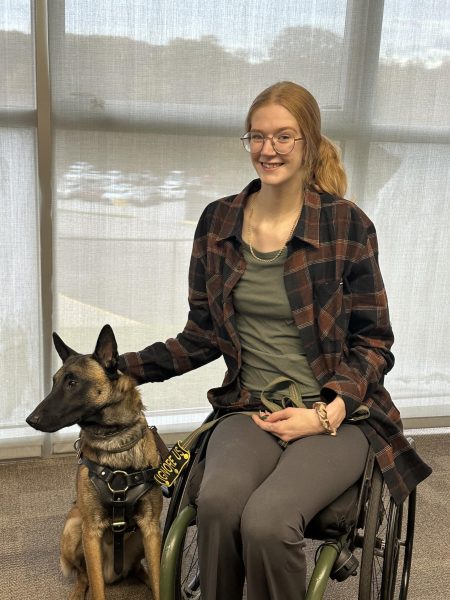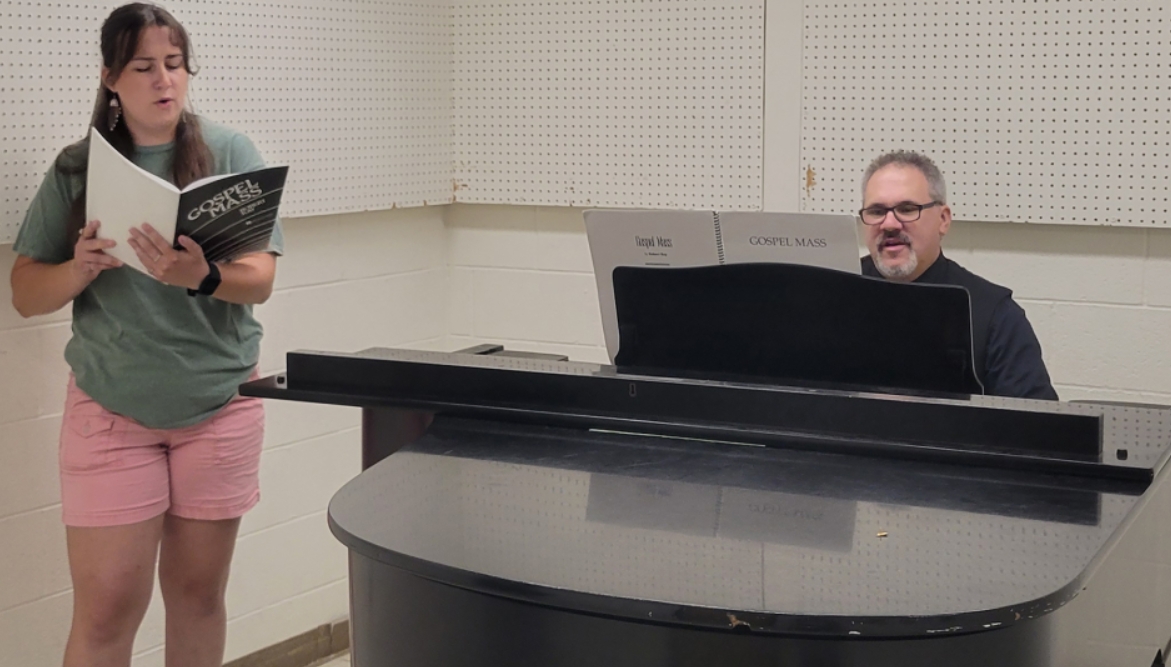WEST LIBERTY, W.Va.– Service Animals are trained to perform tasks to help assist individuals with disabilities. Many people think ESA Animals are the same as service animals, but they are not.
There are many tasks that Service Animals can be trained to do to help individuals with disabilities. Some animals are trained to guide individuals with vision impairments or pull wheelchairs. Others are trained to alert others of a medical emergency, sense seizures, or detect low blood sugar levels, and assist with daily motor tasks, such as opening doors, retrieving dropped items like keys, mail, or medication, and helping their person stand up or sit down.

After talking to Stefon Napier, a Coordinator for Residential Area and Student Life, I was informed that when it comes to service animals on campus, their owners are not required to disclose any information, and staff members are only allowed to ask limited questions regarding them.
West Liberty does not have a registration process for service animals the way that they do for Emotional Support Animals. Students with service animals adhere to the animal policy unless their disability prevents them.
Elizabeth Simon is a WLU student that has a service dog. She said that when she enrolled at the school, she let admissions know when she was coming in for preregistration, and she let all her teachers know about her service dog so they could accommodate her needs.
Simon suggests that people ask her first before petting or talking to her dog. Her dog has been trained to pull her wheelchair to get her from class to class, knows how to open cabinets, and does psychiatric alerts. When she goes into stores, sometimes she encounters people being disrespectful by running up and talking to him or trying to pet him without Simon’s permission, which then distracts him.
To learn more about policies regarding service animals on campus, you can contact ADA Coordinator Andrew Lewis at [email protected] or Stefon Napier at [email protected].







